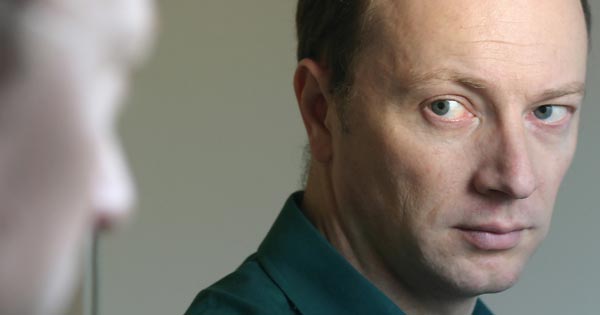Stop Worrying How Others See You and Be an Effective Communicator
by Erika Slater
Do you spend time thinking and worrying over how others see you?
Does it impact your job or relationships? Friends, family, lovers?
Paying attention and understanding what others think about you is important and healthy. It allows us to grow and mature. But it can also get in the way of who we are and what we can become.
So, finding an equilibrium between watching for how others perceive you and focusing on being who you are is a tricky balance.
In this short article today, I’m going to explore some simple ways you can reduce the impact of other’s perception of you on your life.
LOOKING GLASS SELF AND YOUR SELF-IMAGE AND SELF-CONCEPT:

But worrying too much about how we are perceived can lead us to make changes that aren’t always authentic and positive to us, so taking feedback and processing it to validate before deciding what/if to change is important.
The famous American sociologist Charles Horton Cooley came up with the concept of ‘Looking Glass Self’ which helps people develop a better understanding for how others see them based on how they react or don’t react.
In fact, Cooley discussed how Looking Glass Self can create insecurities and low self-esteem for social interactions over repeated time if you start to believe in your perceptions of what others think of you.
When you start to use the Looking Glass Self as a measure for how you feel about yourself around others, it’s not so much believing in who you are, rather how you believe others see you.
Of course, everyone has a need to be liked, wanted or desired by others as people are innately social. Interacting with others can greatly influence your self-image and self-concept.
Your self-image comes from the reflections of others – how they respond to you and how they evaluate you. This process begins in childhood and continues into adulthood. Who you believe you are is how you’ll project yourself to other people, good or bad. Judging on how others treat you or respond to you will most likely reaffirm your self-image and how you’ll continue to act in social settings.
Your self-concept will be based on your understanding of how others perceive you or expect you to be. Based on these experiences, you’re likely to pattern your thoughts in certain situations around certain people and develop consistent feelings.
Over time, you’ll start to act that way with repeated experiences until eventually ‘becoming’ that way socially. Basically, you become condition to act and react a certain way.
Now comes the tricky part…
Are you willing to pay more attention to the feedback others are giving you?
What are their non-verbal cues and body language telling you?
This requires some work on your part and willingness to invest in an understanding of others. We’ll discuss some ways to do this in the next section…
NON-VERBAL CUES AND HYPNOSIS:

- Body Language.
- Tone of voice.
- Facial Expressions.
As they say “less is more.” Which means we can say as much with body language, our voice tone and our facial expressions – pausing for dramatic effect, etc. – than rambling on for hours expelling words and information and boring our listeners or partners to death.
Pausing to allow for feedback is important. It gives us a chance to see how we’re doing and let’s us adjust what we say moving forward.
For example, people love stories, and if there’s a lot of fidgeting going on in the audience or with your partner or friend, then it may be time to change the information flow, and interject a few stories to make your point more real… and interesting.
By being a little observant when sending out your message to others you can determine quickly how it, and you as the messenger, are being received.
Funny enough many people develop their own body language, tone of voice and facial expressions when delivering communications but fail to observe these traits in others. They don’t stop to observe but assume people are hanging on their every word.
Sorry, but they are not! Some are thinking about what they’ll eat that night, or which film they’ll watch.
If you want to know how others see you, then you need to pay attention to their non-verbal feedback. Once you become aware of it, you can learn to speak differently as well as carry yourself differently.
This is a large topic and I wrote an article about “What’s Your Body Language Telling Others – Positive Body Language for Success” and have place a link to it in the additional resource section below.
But this article is also about how to stop worrying how others see you. We can become obsessed about how others perceive us and for most of us we can quickly become ensnared in negative perceptions when none are really there.
And also this is isn’t just about speaking in from of groups or business setting. For example, instead of being fully present in a relationship, we start obsessing about our partner’s opinions, to the point where we neglect our own.
If you struggle with these interactions then hypnosis can help.
When you’re immersed in what you’re doing, it’s still possible to be aware of your surroundings, in a peripheral way. And this means you don’t neglect your tasks, your goals, and who you are as a person.
Using hypnosis, you can become better at reading people, stop worrying so much on what others think of you, learn to communicate with others more effectively, and thereby understand more clearly how other people see you. If you’re interested in working directly with me then check out my online and In-office Special Hypnosis Services here.
Alternatively, if you’d like to check out a self-hypnosis session that’ll help you to develop your insights and live by your own values with the help of hypnosis then check this out here >>>
ADDITIONAL RESOURCES RELATED TO STOP WORRYING:
How Others See You – David Ludden >>>
What’s Your Body Language Telling Others – Positive Body Language for Success – Erika Slater CH >>>
Library of Self-Hypnosis Downloads Products >>>
Erika Slater CH
Free At Last Hypnosis
Massachusetts
CATEGORIES
FEATURED POSTS
Interested in making a significant change in your life and interested in learning more about what I do and how I do it? Discover my hypnotherapy services here or contact me here.

DISCOVER HOW TO START CHANGING HABITS TODAY.
In this free audio hypnosis session, you’ll experience the power of your subconscious mind to begin to change your habits. If you've never experienced hypnosis before then this is a great introduction...


